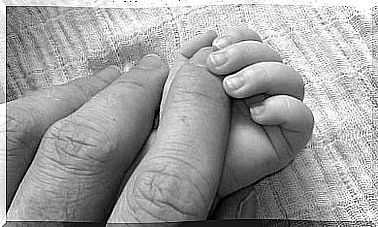How Language Acquisition Takes Place

However, if you know how, you can contribute to language learning and get good results.
The language learning can be described as follows: Human language is a process. It arises from thinking and assigns linguistic qualities to the information received through the senses.
As a result, most people are fully equipped from birth to acquire their mother tongue. Although language involves different aspects, people usually communicate by speaking.
Learning to communicate with a language that corresponds to that of our fellow human beings is a challenge that we face from the first few years of life. The development of language is a process that takes several years and lasts until puberty.
Here we first take up the basic elements of the linguistic system. Only later do we move on to questions of meaning and pragmatics.

Elements of language acquisition
The process of language acquisition can be broken down into three basic elements: form, content and use. Once parents are able to identify the stage of their child’s language acquisition, they can become more consciously involved in the process.
Shape:
This is one of the most difficult elements to identify as it is completely abstract. However, we do know that it develops over the period from birth to the age of five or six.
If your child is in the process of internalizing the form of language, experts recommend helping them understand some basic grammatical relationships, sounds, syllables, and words.
Content:
This concept suggests that the child is beyond learning sounds and phonic chains. When this point is reached, it means that the child or adolescent knows most of the lexical content they encounter. This means that they know the meaning of most of the words they see or hear.

Use:
The development of this element can take longer. In order to achieve an appropriate use of lexical systems, advanced semantic knowledge is required. With the acquisition of pragmatics, an individual is ready to understand indirect forms of language – such as irony, humor, or ambiguities.
This allows the child to judge whether an expression is appropriate and to adapt his language to the situation.
How can we contribute to language acquisition?
Although we’ve explained them separately, the form, content, and use overlap at each stage. To help develop these stages, it is not a good idea to skip something or go too fast.
However, you should not leave out any information that may be useful to the child as their cognitive skills develop.

Language acquisition
- Talk to your baby all the time. Your communication with your child should develop over the years.
- Use an appropriate tone of voice: not too loud or too soft, cheerful and expressive, with exclamations and questions.
- Use gestures and get your child to watch. That way, they will begin to pick up on the terms you are using as well as your speech. Notice the movements of your mouth that make it easier to repeat notes.
- When your baby makes their first noises, it is important to respond, repeat, and have little conversations with them.
- Reading a story is a great way to make the little ones aware of the forms of language and prepare them for the content.
- Even if your child hasn’t spoken any words , they’ll understand you, especially if you use simple terms. Now is the time to give them messages and teach them vocabulary.
- It is never a bad idea to explain things the child sees around them. If you see something of interest, share information about it with your child.
- Listening to and responding to our surroundings does everything to improve the quality of our speech. Always correct with tact. All of these are immediate tools for language acquisition development.









